Selling a Zoo Can Be Wild
A pair of North Carolina zoos on the market offer a clinic on the brokerage side of such sales
By Nicholas Rizzi April 11, 2024 11:02 am
reprints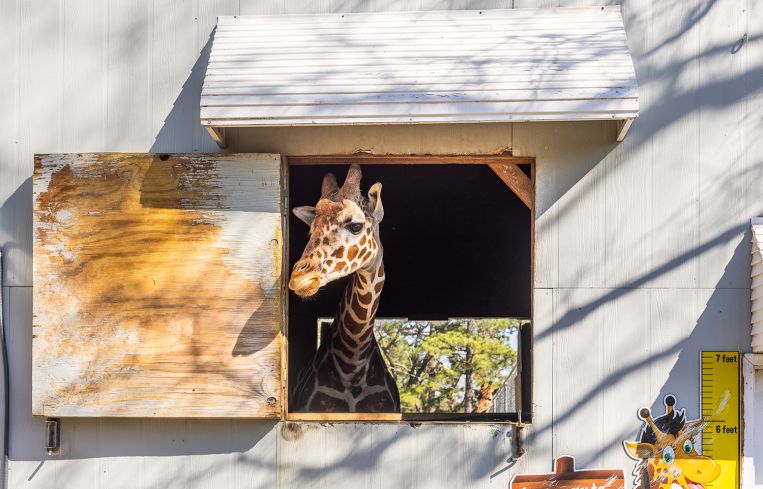
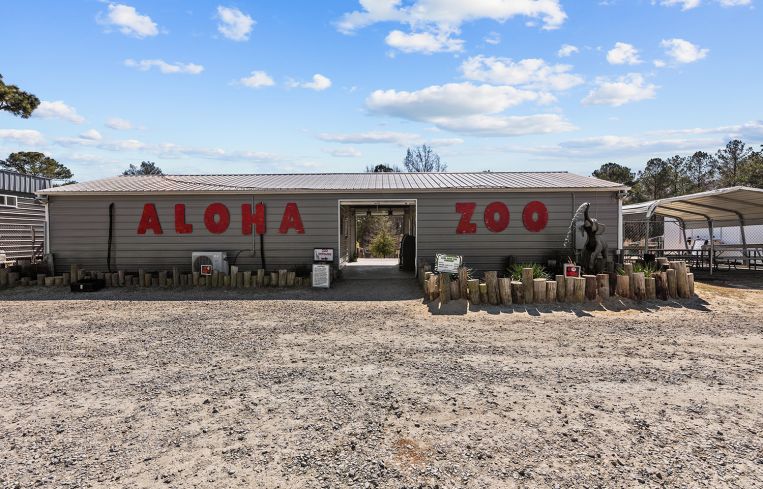
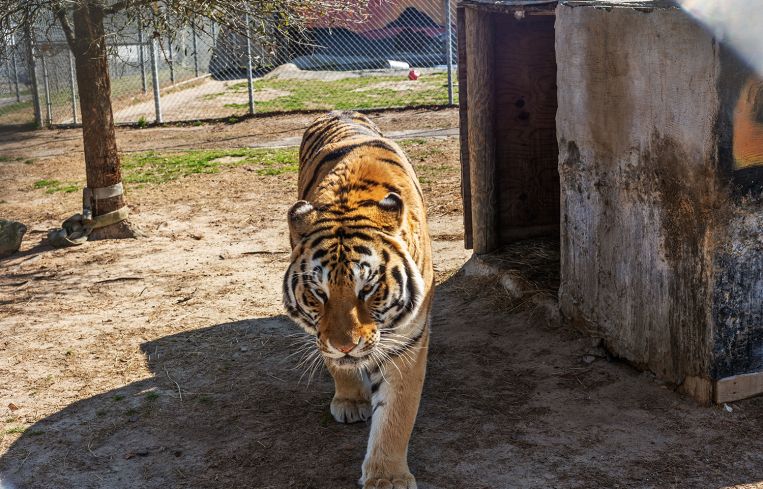
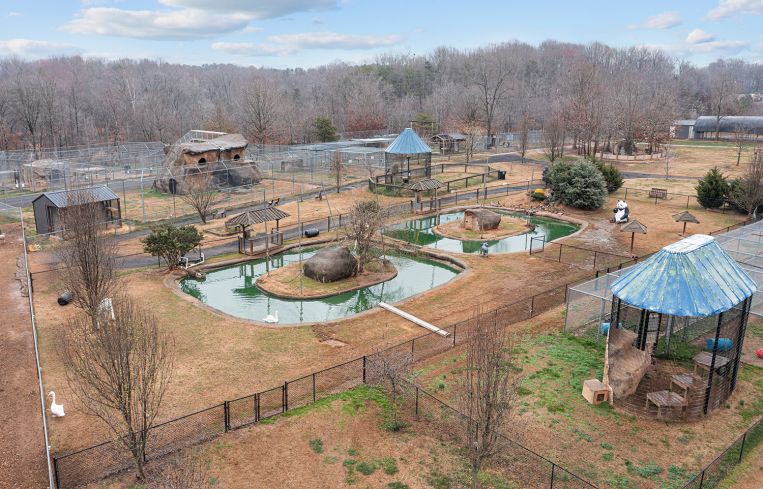
If you’ve ever wanted to channel your inner Matt Damon (read on) and be the proud owner of a zoo, you’ll have two chances in North Carolina.
Two privately owned zoos in North Carolina hit the market earlier this month, each sold separately by longtime owner Scottie Brown, according to National Land Realty, which is brokering both sales. Up for purchase are Zootastic Park in Troutman, N.C., with an asking price of $16 million, and Aloha Safari Park in Cameron, N.C., listed at $4.5 million.
Both zoos come complete with the main attractions: the animals — a mix of monkeys, tigers, kangaroos and giraffes between the pair.
Selling a zoo offers up some unique challenges for brokers. Unlike other real estate deals, where a prospective buyer needs a down payment and a mortgage to secure the deal, potential zoo owners also must have some previous experience with exotic animals and be able to obtain a permit from the United States Department of Agriculture to continue to operate either attraction.
“It’s one of the more unique things I’ve worked on in my career,” National Land’s Peter Mazeine, who’s brokering the sale with Billy Parker, said. “The fact that our owner had tigers and giraffes, and a lot of these bigger exotic animals, it’s not just anybody that can own those and put those on display.
“Money is not necessarily the highest bar. Instead, it’s somebody’s ability to have one of these exhibitor permits, and that’s based on experience in that field,” Mazeine added.
Zootastic is spread over 186 acres and is the largest privately owned zoo in North Carolina. It’s closer to Charlotte than Aloha Safari Park, part of the reason for the higher asking price, Mazeine said. Aside from the land and the animals, it also comes with inventory, such as the merchandise in the gift shop, and the ability to keep the Zootastic name.
A little farther away, Aloha has more than 300 animal species, and marketing materials boast “hands-on experience” with exotic animals for guests.
Given the novelty of unloading a zoo, coming up with the asking prices proved challenging. Mazeine — who hasn’t handled the sale of one of these before — wasn’t able to find other brokers who have, or find much info about other zoo acquisitions.
“That’s where it’s not like selling a single-family home, where it’s easy to find comparables,” said Mazeine, who brokers all types of commercial real estate transactions, including agriculture deals. “It’s something different.”
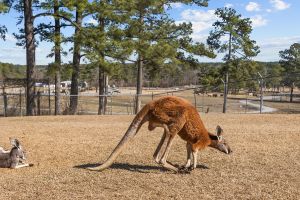
One recent sale that made headlines came in 2020, when the Bayou Wildlife Zoo in Alvin, Texas, sold for $3.6 million, the Houston Chronicle reported. The former owners — Clint and Barbara Wolston — originally listed the 80-acre spot with 500 animals for $7 million in 2016 but had trouble finding owners who met their standards to sell to, the Chronicle reported.
The broker behind that sale did not respond to a request for comment.
And another recent zoo transaction in Florida eschewed brokers altogether and took the same tactic as somebody selling their bike. The former owners of the 10-acre Emerald Coast Wildlife Refuge Zoological Park in Navarre, Fla., listed the zoo for sale on Craigslist — you read that correctly, Craigslist — with an asking price of $350,000, the Northwest Florida Daily News reported. It was eventually bought by a family who planned to live there, but the final sale price was unclear and public records of a transaction couldn’t be found.
Mazeine said he started pricing the North Carolina zoos like any other real estate asset he’s worked on — looking at cash flows for the businesses and future redevelopment potential on the sites — and leaned on Brown’s expertise to bake the animals into the asking price.
And it’s not just pricing that makes selling a zoo a circus.
There’s the obvious “Tiger King” jokes that Mazeine and Parker have to endure and myriad phone calls from plenty of serious, and non-serious, buyers the pair has had to field. Plenty of calls have also come from people against the idea of zoos themselves.
“There are others that just have a certain viewpoint on zoos and want to talk about that,” Mazeine said. “That’s honestly when we say what we’re doing is selling the zoo for someone who has dedicated his life to running the best operations that he can. And it’s always been in the animals’ best interests.”
Private zoos came to the wider public radar largely thanks to the Netflix documentary series “Tiger King,” that took a look at some of the less than savory characters who run these operations. But privately run zoos have been in the crosshairs of activists for years, who say they put animals in danger. While CNN reports there are plenty of reputable private zoos in operation around the country, there are many others that give the industry a seedy reputation. (Commercial Observer would be remiss not to note, too, the 2011 Matt Damon and Scarlett Johansson movie “We Bought a Zoo,” which was about exactly what the title implies and was based on Benjamin Mee’s memoir.)
Mazeine said that he wouldn’t have taken on the zoo assignments if he didn’t see the dedication Brown — who has owned Zootastic since 2008 and Aloha since 2022 — has toward the animals and the worries he’s had about their safety.
Still, Brown has gotten some blowback from his treatment of animals at Zootastic. In 2016, the USDA fined the zoo $7,450 for various violations — including an enclosure that let a kinkajou escape — while inspectors cited “critical” concerns in 2022 when it found three monkeys had frostbite, leading to two needing to have their tail tips amputated, the Associated Press reported.
Brown did not respond to a request for comment. He told local news outlets in 2022 that he let the monkeys outside because “they don’t like to be confined.” He added that, despite complaints from advocacy groups, the park tries to uphold the best safety standards and cleanliness.
USDA records show Brown hasn’t received any violations from the agency since the 2022 inspection.
The Wolston family in Texas told the Chronicle finding the right buyers who had the animals’ best interests in mind was the reason for the long sales process. “The fact that these people love animals, that’s important [and] that’s why it took so long,” Barbara Wolston told the paper. “You want someone who wants that type of business and wants to continue it … [and] the timing was just right; we are retiring and they were looking for something.”
For Mazeine, he’s been focusing on a potential buyer’s ability to obtain the USDA permit to vet their legitimacy — since the agency doesn’t just give them out liberally — and said that Brown has offered to help suss out any potential zoo buyer to make sure the animals are cared for.
“This is a small world, he understands that most likely he’s going to know the buyer or the operator,” Mazeine said. “He wants to get paid, but he also wants to make sure that it’s left in good hands.”
And, first, Mazeine has to wade through all those phone calls he’s gotten to find the serious buyers in the mix.
“We’ve been inundated with calls and emails and inquiries and, at this point, we are still sorting through what is real and what is not,” Mazeine said. “This is something where we’re just seeing people with curiosity reaching out whether they’re qualified or not. We figured there would be interest from those that were not necessarily qualified to move forward, but I think we underestimated how many people were just going to pick up the phone and want to know more.”
This reporter included.
Nicholas Rizzi can be reached at nrizzi@commercialobserver.com.



